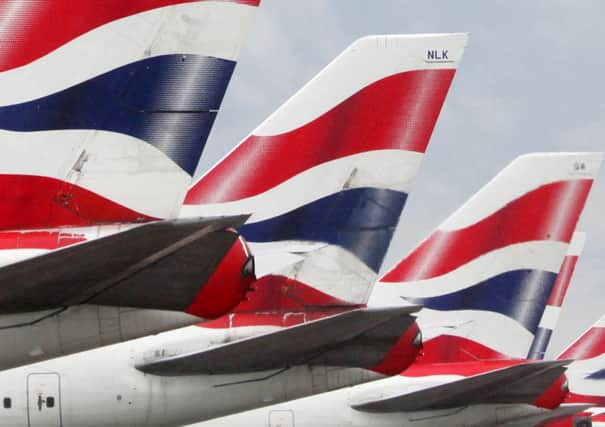British Airways soars in battle of the brands


Now it seems that the winning factor in the battle of the superbrands is longevity, with some of the oldest household names beating approaches from younger competitors.
The 95-year-old company British Airways beat more than 1,500 firms to stay at the top of the annual ranking of brand strength in the UK.
Advertisement
Hide AdAdvertisement
Hide AdAnd the top three names of this year’s list have a combined experience of almost 300 years, with 110-year-old luxury watchmaker Rolex second and the 93-year-old BBC third.
Superbrands council chairman Stephen Cheliotis said the airline’s success was indicative of a wider trend that has seen trusted, traditional names trump younger brands such as Facebook and Twitter.
Old favourites Marks & Spencer, Cadbury, Heinz and Sony lost their places in the top 20 to John Lewis, Dyson, Haagen-Dazs and Virgin Atlantic.
Despite its abiding dominance of internet search engines and headline-grabbing stunts such as the driverless car, Google continued its slide in the league, falling from seventh to 18th – its third consecutive plunge and its biggest to date. Meanwhile, Amazon.co.uk dropped out of the top 20 altogether.
However, it was not all one-way traffic, as old high street favourites Marks & Spencer, Cadbury, Heinz and Sony lost their places in the top 20 to John Lewis, Dyson, Haagen-Dazs and Virgin Atlantic. Meanwhile, Apple managed to climb back up four places to 10th position, following the success of its latest iPhones, while its arch-rival Microsoft climbed two places to number four.
Outside of the big ticket names, trust in low-cost household stalwarts such as Andrex, Coca-Cola, Gillette and Kellogg’s meant they retained their places, while Lego re-entered the top 20 following the box office success of its first movie.
Mr Cheliotis said: “Younger brands, such as the social media giants, are sitting on the sidelines making little impact as a huge battle takes place among trusted, traditional brands seeking to remain relevant and retain their positions among the brand elite.”
Chris Chapleo, senior lecturer in marketing at Bournmouth University, said: “Brands are all about relevance for the particular audience. In the case of Google, there is a massive awareness out there but they’re not necessarily a brand choice or a brand that we have a love affair with.
Advertisement
Hide AdAdvertisement
Hide Ad“In the case of something like Apple, it’s a brand that people can be quite evangelical about and have a connection with.
“Also, with the likes of BA or the BBC, there’s perhaps more of an emotional resonance there.”
Mr Chapleo said Rolex may owe its high placing to the fact that its products have an attractive heritage and appeal to people’s aspirations.
He added: “People love these league tables, as we are overloaded with information, so these things give people a set of shorthands which allow them to judge competitors against each other.
“People also complain bitterly that they are not an accurate reflection of reality.”
The Consumer Superbrands ranking has been compiled since 1995 and is based on a survey of 2,500 adults who were asked to consider a selection of brands by the Centre for Brand Analysis.